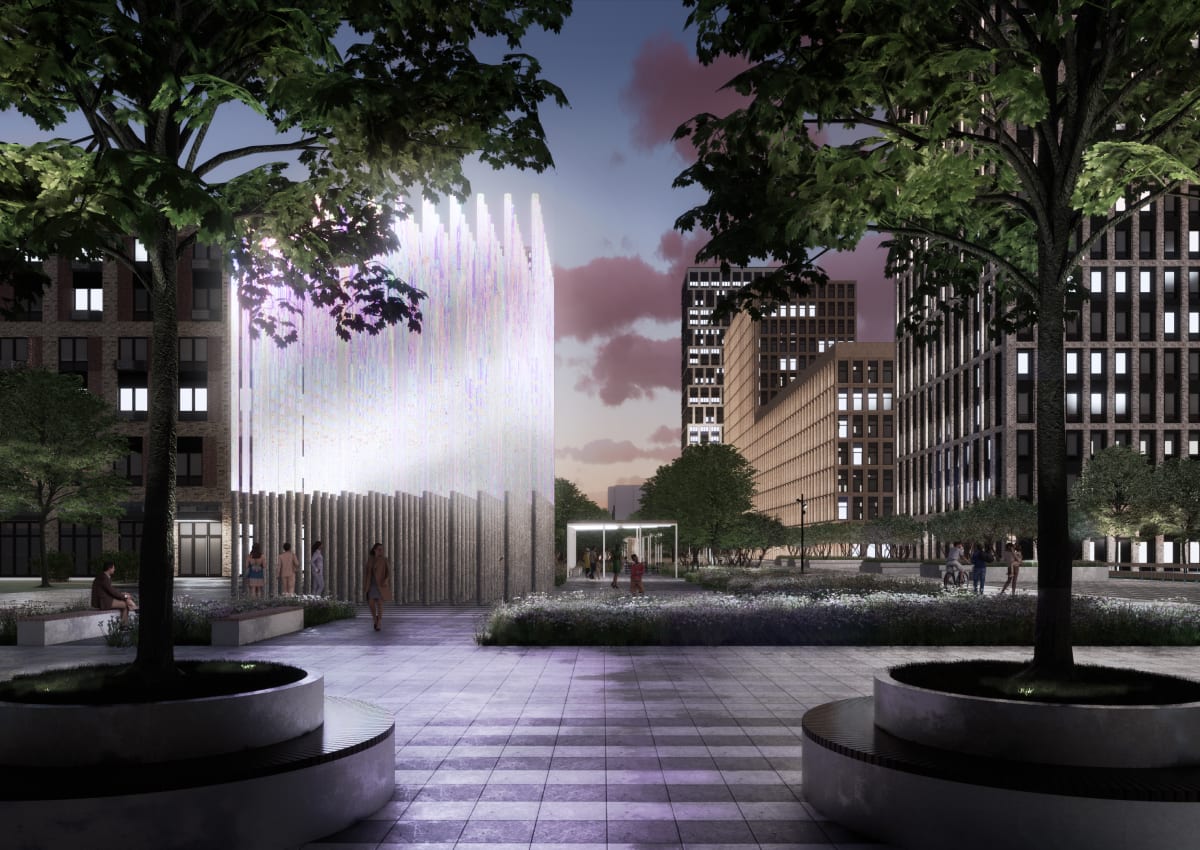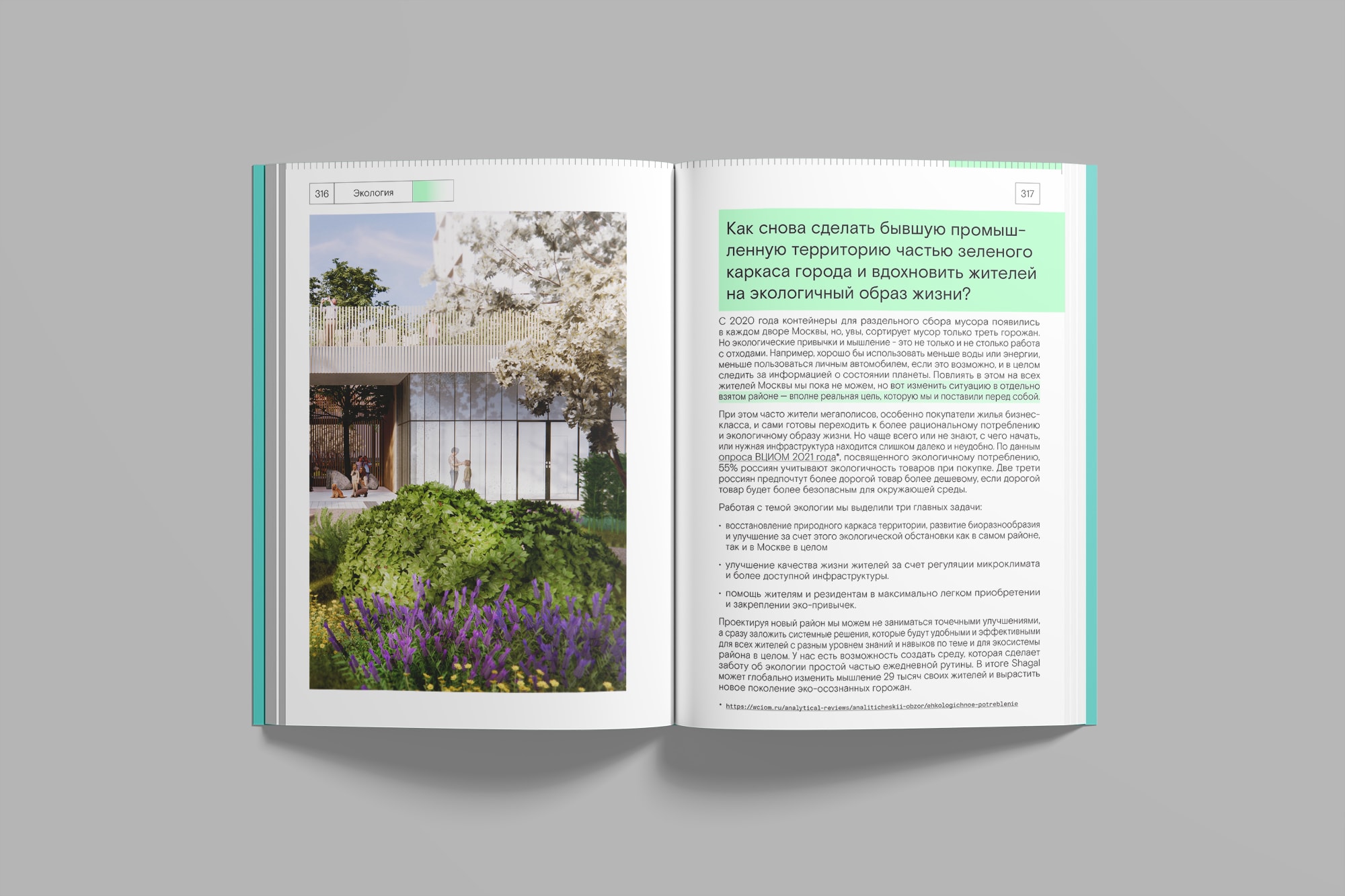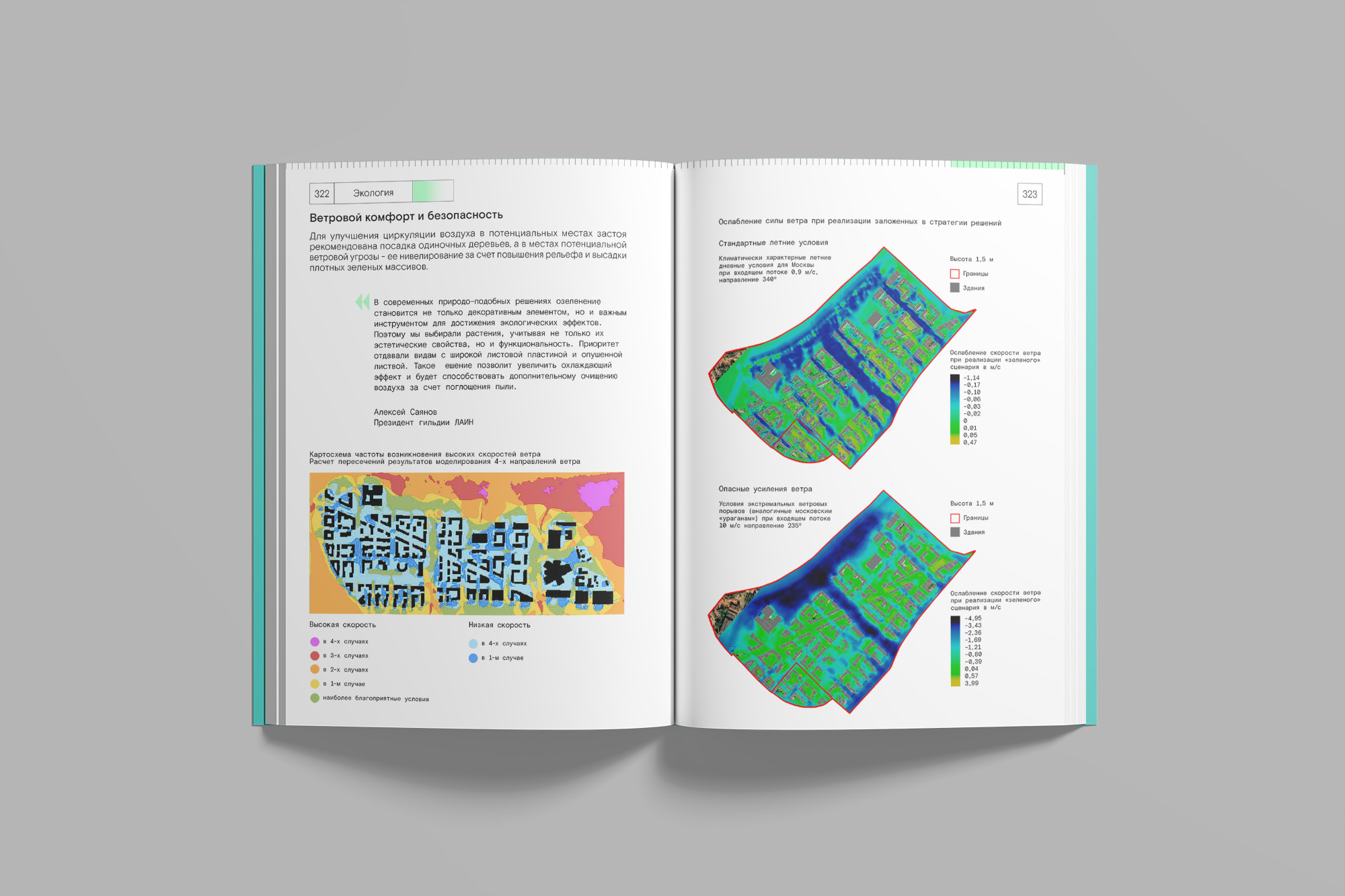shagal: ecoinfrastructure
community of care for tomorrow

how can a former industrial area be made part of the city's green framework again and inspire residents to embrace an eco-friendly lifestyle?
Shagal is the largest residential redevelopment project not only in Moscow but in Europe: it spans 109 hectares and consists of nine construction phases on the site of the former industrial zone "ZIL-South," scheduled for completion over 15 years. At the request of the Etalon company, CM International became the authors of a large-scale development strategy for the area, which includes a plan for creating eco-infrastructure. This is one of the key parts of the strategy, which will transform the former industrial zone into an integral part of the city's green framework. We worked on it alongside several leading companies in the fields of progressive landscaping and environmental analysis, including the Guild of Landscape Engineers, the Smart Urban Nature research center, the Sborka eco-center, and the Prostoye Delo company.
To restore the area's green framework and ensure its sustainability in key natural zones, it is recommended to recreate the lost elements of the pre-industrial landscape. Based on the historical biodiversity of these zones from the pre-industrial era, we proposed planting at least 50% native species in the residential area using the three-tiered landscaping principle. Additionally, we provided recommendations for creating wind and temperature comfort in the Shagal area through proper landscaping.
Together with the Sborka eco-center, we developed a modern waste management system using recyclable sorting, special waste chutes, and waste rooms. A great deal of attention was given to the strategy for eco-education of future residents, as well as the creation and management of an eco-community. Thanks to Prostoye Delo, Shagal has detailed recommendations for creating eco-conscious communities, along with a comprehensive roadmap for engaging residents in an environmentally friendly lifestyle.
One of the key aspects of building the community is creating a shared experience. In the Shagal Quarter, the core of eco-life could be the Eco-center, which will be housed in the pavilion of the central sales office on Mark Shagal embankment. Inside, there will be a recycling reception and processing center, lecture halls for events, spaces for workshops and film screenings, a museum of recycling and sustainable living, sharing zones, and a Zero Waste store.




